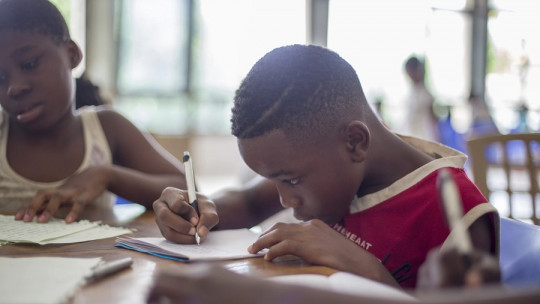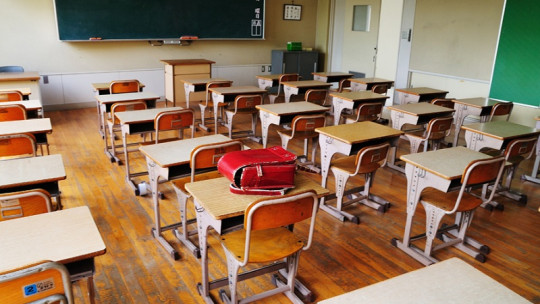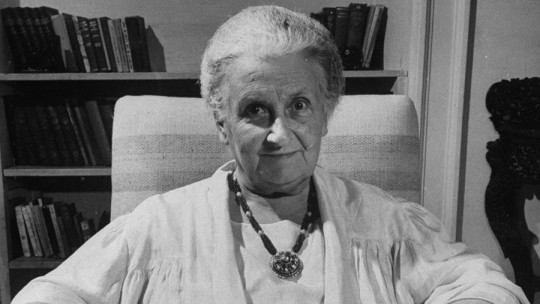“Ah, she has been brilliant since she was a child,” could have been the comment of a mother referring to her daughter after she obtained an A in the last Language and Literature exam. For his part, the father could have pointed out that her excellent academic performance was due to the fact that his daughter was educated in the most prestigious educational institutions in the city, so the cause of her good performance would be the teachers who taught her their knowledge. throughout all these years. For our part, we cannot deny that intellectual variables or variables linked to teaching themselves influence the educational success of students, but we can say that contextual elements are much more important than what we colloquially believe when we think of a successful student.
Since we mentioned an erroneous belief, there is a tendency to consider that the figure of the psychopedagogue intervenes exclusively in learning difficulties and the development of cognitive skills, while other of his functions – such as his intervening role in conflicts – tend to be made invisible. If we take into account that learning does not depend merely on factors intrinsic to the student’s abilities, we can notice that The work of professionals such as educational psychologists is key to ensuring educational success, since they are the ones who intervene in the multiple contexts that challenge the student when learning. Let’s see a little more about it.
The role of the educational psychologist in the school
Psychopedagogy is a discipline that, on the one hand, deals with learning problems. Specifically, this implies that educational psychologists are capable of knowing the processes involved in memory and learning, such as attention, orientation and maintenance, the structure and functioning of short-term memory, the passage of information to memory. long-term, its recovery, the evolutionary bases of these capabilities, among many others. In such a way, If there is a deficit in any of these abilities, you will be able to notice it together with professionals from other disciplines
However, as we pointed out previously, assigning only this function to the educational psychologist is a reductionist way of understanding the work they perform to ensure the success of students. One of the fields of intervention of psychopedagogues is within schools, since they are professionals who can participate in school guidance teams—also called cabinets—to which many students, teachers or families come due to specific problems in the different contexts that they encounter. contour to learning. We also mention that the latest scientific research suggests that factors linked to the interaction of different contexts—for example: cultural, family, and school—are fundamental for academic success, even more than the student’s intellectual abilities.
But what happens when there is conflict between these contexts, when the values acquired during upbringing compete against the values of the institution in which the student learns? And with those that their companions bring with them? What happens in situations of vulnerability that directly interfere not only with learning, but also with permanence in education centers? Isn’t it about intervening on these issues, but about educational success? In order to resolve these problems, the intervention of a psychopedagogy professional is crucial
The functions of the educational psychologist in educational institutions
Below, we list some of the functions that educational psychologists perform in educational institutions:
Student success or educational success?
The fields of intervention of the psychopedagogy professional are broad and of utmost importance to not only facilitate student learning but also to promote the general well-being of the social actors who participate in an educational institution. They also have the function of intervening in conflicts, in potentially problematic or risky situations. Through these actions, psychopedagogues who work in educational institutions manage to make transits through these settings more enjoyable; Also that people can acquire the necessary basic content in an environment that favors this task.
Therefore, returning to the situation of that star student who gave rise to this article, we ask ourselves: is it appropriate to talk about student success or educational success? The term student success seems to emphasize the idea that a good passage through school or university is determined by factors intrinsic to the subject. Could it not have been that, perhaps, the contexts in which she developed during her life facilitated her passage through school to be positive? Could it not be that certain professionals were involved during her career, capable of mediating between the areas in which she lived? Unfortunately, the tendency to individualize success of the student brings with it an inclination to have the counterpart of “student failure” fall on their shoulders. For this reason, perhaps it is better that we start thinking in terms of educational success; the success of the different professionals who manage to integrate the contexts of the subjects who participate in the centers or schools, highlighting among them the psychopedagogy professionals.









